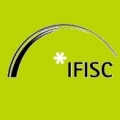


In this paper we model the dynamics of language shift as a competition process in which the numbers of speakers of each language and of the bilingual sub-population vary as a function both of internal recruitment (as the net outcome of birth, death, immigration and emigration rates), and of gains and losses due to language shift. We apply our approach to the English-Gaelic competition in Western Scotland. We are able to replicate the main dynamic of the shift process and give predictions about the future of the Gaelic language under unchanged environmental conditions. Contrary to the Gaelic situation where a sharp decline of the number of Gaelic-speakers is observable the Welsh situation is an example of a remarkable revival of an almost moribund language. The revival success is related to strategies whose objective is stable societal bilingualism - by creating or preserving segregated and complementary sociolinguistic domains, in each of which one or other language is the preferred medium of communication. To consider these effects we examine a second model in which bilingualism is no longer simply the transitional state. Superimposed on the basic shift dynamic there is an additional demand for the endangered language as the preferred medium of communication in some restricted sociolinguistic domain, and this demand persists until the number of speakers of the endangered language becomes very small (at which point the demand ceases). We present numerical case studies for both, the English-Gaelic and English-Welsh competition.